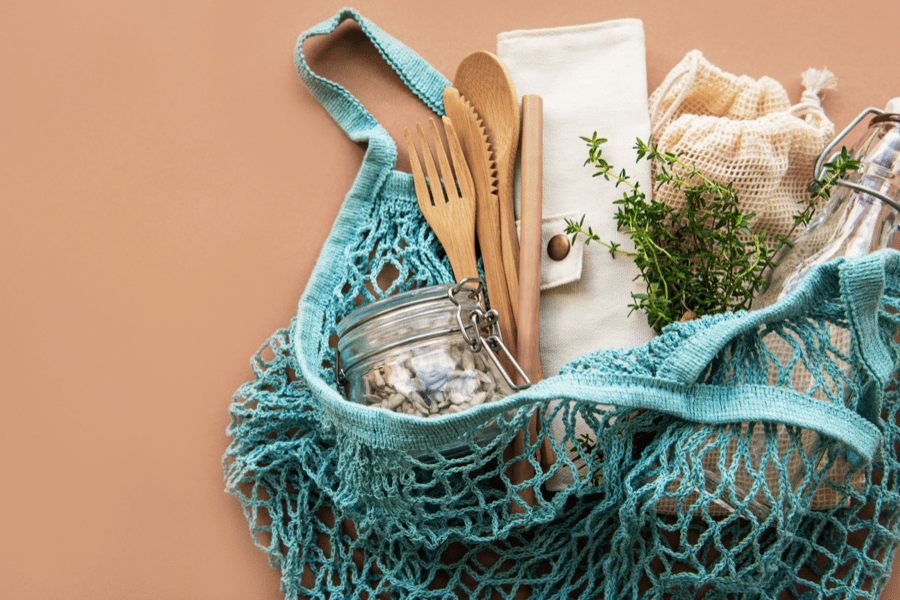

Simple changes can help you reduce your waste!
Zero Waste Week, Sept. 5-9, is a time to reflect on ways to reduce the number of items we send to the landfill. “A zero-waste lifestyle begins with preventing waste through reducing and reusing first, then recycling and composting,” said Amy Reaume, our Sustainability Manager.
Let’s not waste time! Here are 10 simple ways to make a big impact this zero-waste week – and beyond.
- Say “Yes to less!” Reducing through purchasing less is one of the best ways to step into a zero-waste lifestyle! Not only does this reduce the impact of harvesting new resources from the earth, but it also saves on the energy, emissions and resources needed for manufacturing, packaging and transporting new items. Always take a look to see what you can reuse, repurpose, borrow or rent rather than purchase, especially if the item will not be used often.
- Check out Facebook Marketplace and local Buy Nothing groups to either buy used items or even score things that another community member may be looking to rehome for free!
- Reduce food waste. Food is the single biggest component of our country’s landfills, and the average American sends more than 200 pounds of food there every year. The carbon footprint of food waste is greater than that of the airline industry with 30-40 percent of all food in the U.S. going to the landfill.
- Food waste can be reduced by dedicating less than 30 minutes a week to inventory food at home. Check out your pantry and arrange items by their expiration date and do the same for the fridge. This will also help when it comes to preparing for shopping trips.
- Get creative in the kitchen! Find or invent new recipes to use up miscellaneous ingredients. One-pot meals like pasta, soup and rice bowls are great for tossing miscellaneous items from the fridge and the pantry that are close to expiration. And the results are usually nutritious and delicious!
- Have fruits and vegetables that are close or a bit past their prime? Freeze your produce! This is a great way to preserve produce for vegetable stock or making smoothies.
- Say NO to plastic whenever possible! Plastics are in the top three items filling our landfills, along with food waste and paper and paperboard.
- With a little bit of thought, single-use plastics can be almost completely eliminated. Always bring a reusable cup or drink container (no need to go out and buy one – upcycle a glass jar, if needed!), say no to disposable straws or bring your own reusable straw. Keep reusable grocery bags wherever you’re most likely to remember them – in your car, on the counter, in a purse, etc.
- Forgot your reusable grocery bags? No problem! Just load groceries back into your cart loose and bag them from your car when you get home. This is a great way to avoid single-use grocery bags and help yourself remember reusable bags next time! It usually only takes a few times using this method to consistently remember reusable bags.
- Reduce textile waste by patching items or cutting them into reusable cleaning cloths. Avoid fast fashion, or cheap and trendy clothing that may wear down or go out of style quickly. This type of clothing tends to end up at the landfill.
Brevard Zoo is an independent, not-for-profit organization that receives no recurring government funding for our operating costs. Your generous support enables us to continue to serve our community and continue our vital animal wellness, education and conservation programs.
